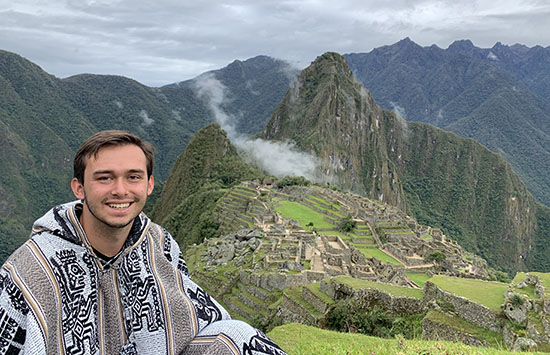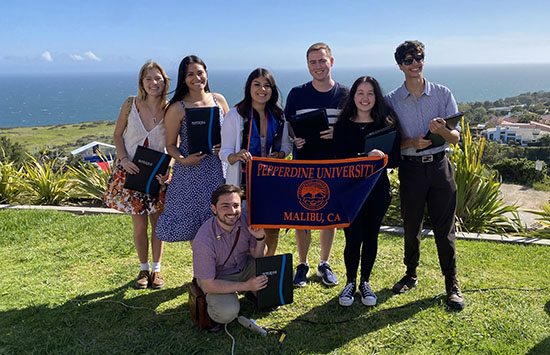History Major and Minor
Why History
The ancient Greek historian Polybius argued that the study of history provides the best education for those who wish to live productive, effective lives. By examining the past, we gain insight into the human condition that enables us to understand the present and shape the future. But we must discern the right lessons, so that inaccurate or biased histories do not lead us into error and misguided actions. Therefore, the history program at Seaver College trains students to understand the past critically and fairly so that, as Polybius hoped, they might gain wisdom to engage the present in pursuit of a bright future.
Exploring the human experience in all its rich complexity, the study of history is essential to a liberal arts education. Students are challenged to make meaningful connections between the past and present, to understand the views of people from other times and places, and to learn from the experiences of those who came before us. The major fosters cultural awareness, appreciation of diversity, and clear, concise, and respectful communication.
History Curriculum
History Major (41 Units)
History majors explore the complex factors that have produced the cultures and societies of today, cultivating responsible citizenship and respect for diverse perspectives. Students learn from the past by engaging diverse historical texts, honing research skills, drawing evidence-based conclusions, and presenting their findings orally and in writing. These skills are valuable in many careers, including government service, law, education, library science, medicine, business, journalism, and the arts. History majors take three core courses (nine units) and seven upper-division history electives (28 units).
History Minor (20 Units)
The history minor complements many majors, as studying the past helps us to understand the complex factors that have produced our world today. Students are challenged to understand the diverse perspectives of people from other times and places and to learn from their experiences. History minors are required to take five upper-division history electives.
Connect With Us on Instagram for News and Events
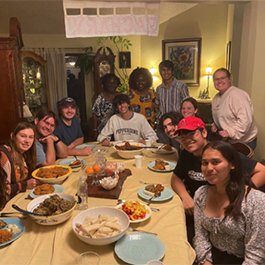
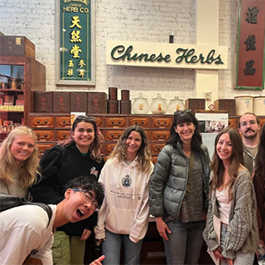
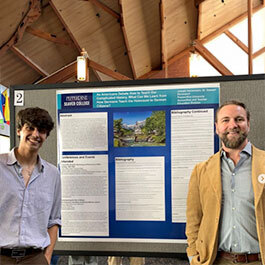
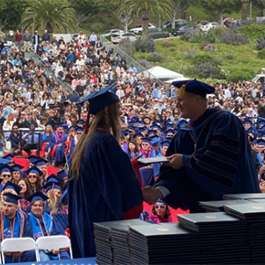
What Humanities Division Grads Are Doing
Data collected from the 2024 class within six months of graduation.
Employed Full-Time or Part-Time
Admitted to Graduate School
Total Settled Graduates
Why Pepperdine
Pepperdine Seaver College is consistently recognized among the top-ranked universities in California and the United States. We are a Christian university where students grow in knowledge and character. As a liberal arts institution, we focus on providing rich opportunities for intellectual and spiritual exploration for students with a diverse community.
Located in Malibu, CA
13:1 Student-to-Faculty Ratio
80% of Students Participate in an International Program
120,000 + Alumni Network
Student Opportunities
Integrative Learning
History major courses allow students to study every aspect of the human experience.
It both imparts information critical to a mature understanding of the past and develops
proficiencies in the arts of inquiry, such as analytical reasoning, research skills,
and effective oral and written communication. It involves students with their teachers
in a rigorous process of investigation, discovery, and mutual endeavor.
Humanistic Excellence
Typically attracting some of the University's most academically talented students, the history major at Pepperdine promotes an expansive range of mind, confidence to anchor opinions in deep understandings of human behavior, and courage to approach even exceptionally entangled problems. Students learn to think constructively about the present by making connections to the past, and to sustain a fertile life of the mind beyond graduation.
Professional Training
History's insistence on clean argumentation, persuasive analytical prose, excellence in oral disputation, and a carefully calibrated understanding of ideas, society, culture, and politics makes the history major the ideal preparation for success in any field of professional endeavor. History majors pursue influential careers in:
- Academic scholarship
- Business, marketing, and consulting
- Civil service and the military
- Federal, state, and local government
- Journalism and broadcasting
- Law and the judiciary
- Libraries and archives
- Medicine
- NGO advocacy
- Publishing and editing
- Teaching at all levels
Career Resources
Interested in studying history but aren't sure what a career might look like? Explore the resources below.
- Careers for History Majors
- Careers for Students of History
- Public History Resource Center
- Why Become a Historian
- Why Study History
Phi Alpha Theta Honor Society
The Humanities and Teacher Education Division sponsors a chapter of Phi Alpha Theta, the international honor society in history. Membership for faculty and students alike is a recognition of excellence in scholarship. At its biennial convention, undergraduate and graduate students have the opportunity to meet distinguished historians and to present their own research papers. Members also receive the society's journal, The Historian.
Business Emphasis for History Majors
History majors interested in pursuing business careers should take certain business-related
courses in addition to those required for their major. These courses should assist
them in entering MBA programs or in finding employment after graduation. Copies of
this list are on file in the Humanities and Teacher Education Division office (CAC
300).
Take the Next Step
Reach out to us to learn more about Pepperdine's undergraduate programs.
Get In Touch
Learn more about how you can join the Pepperdine community.
Visit Our Campus
Explore Seaver College and connect with an admission counselor.
Start Your Application
Submit an application and be one step closer to becoming a Wave.
Contact Us
Humanities & Teacher Education Division
Pepperdine University
24255 Pacific Coast Highway
Malibu, CA 90263
Office: CAC 300
Stella Erbes
Divisional Dean & Professor of Education
Genny Moore
Office Manager
Lee Jackson
Administrative Assistant

